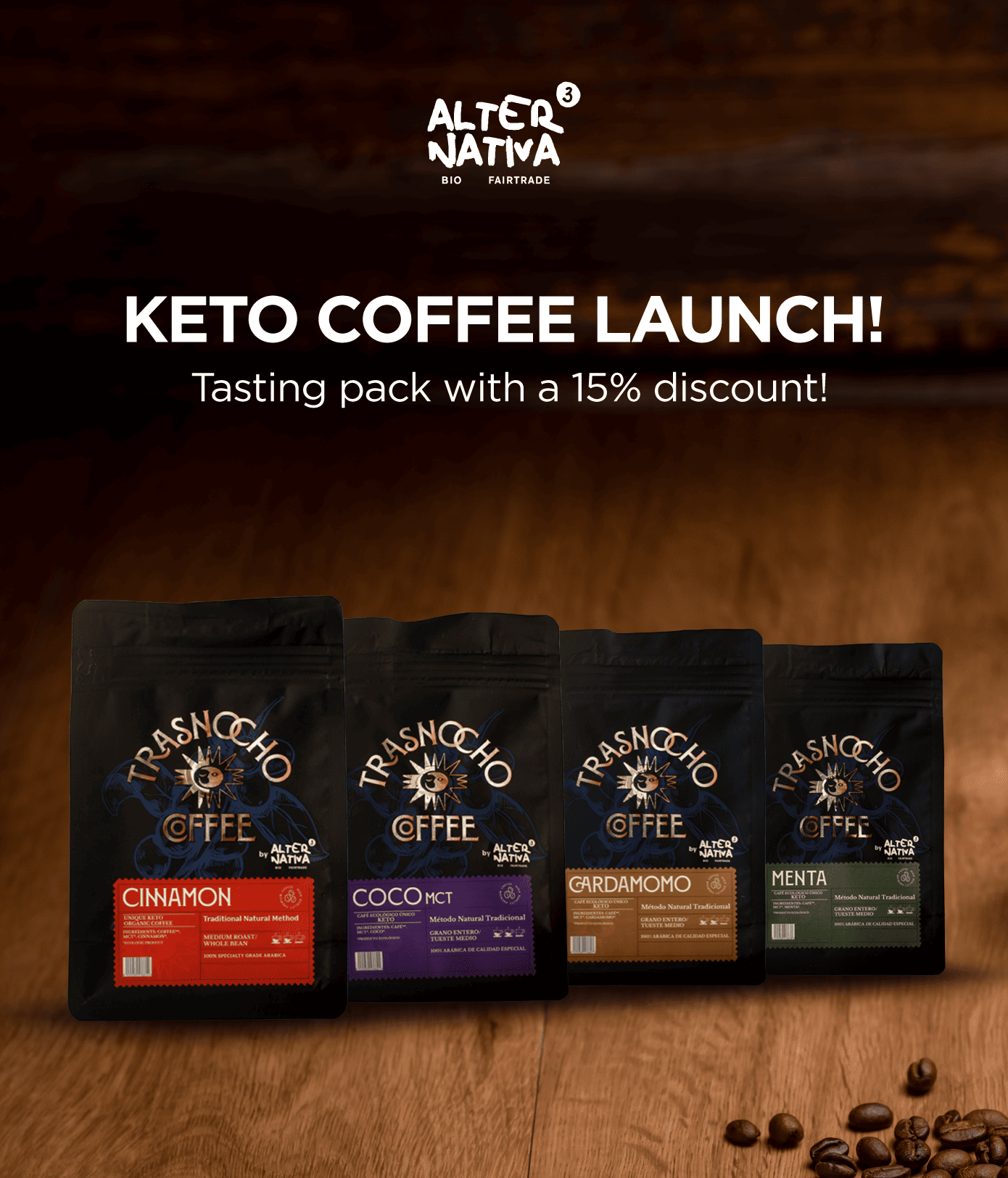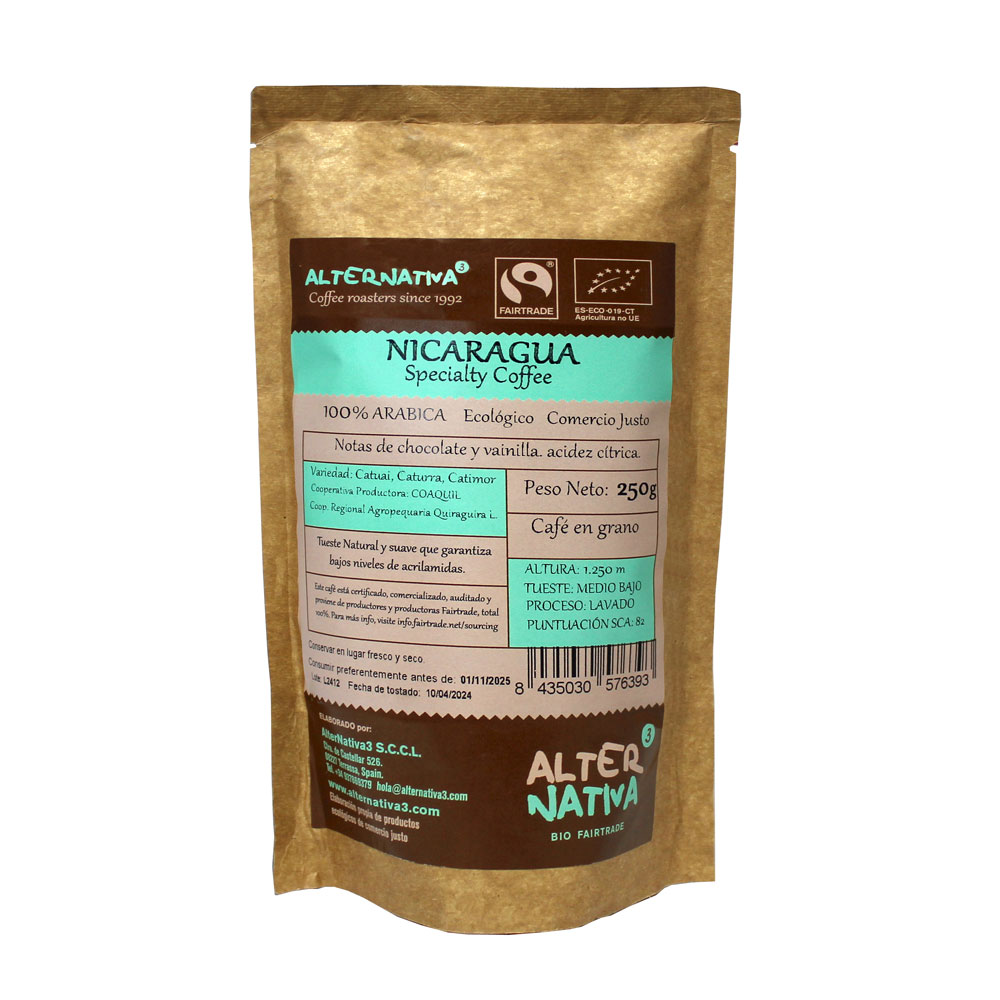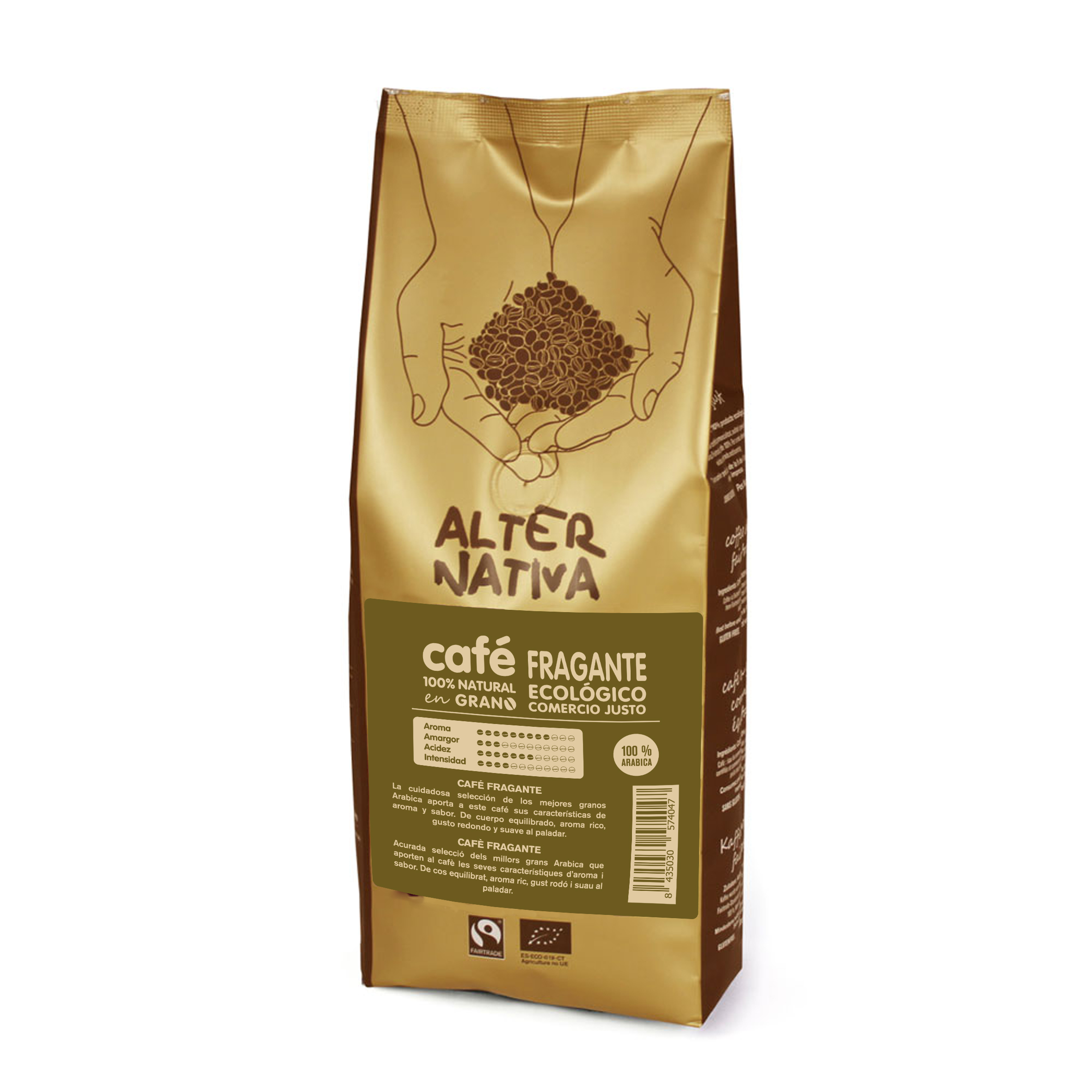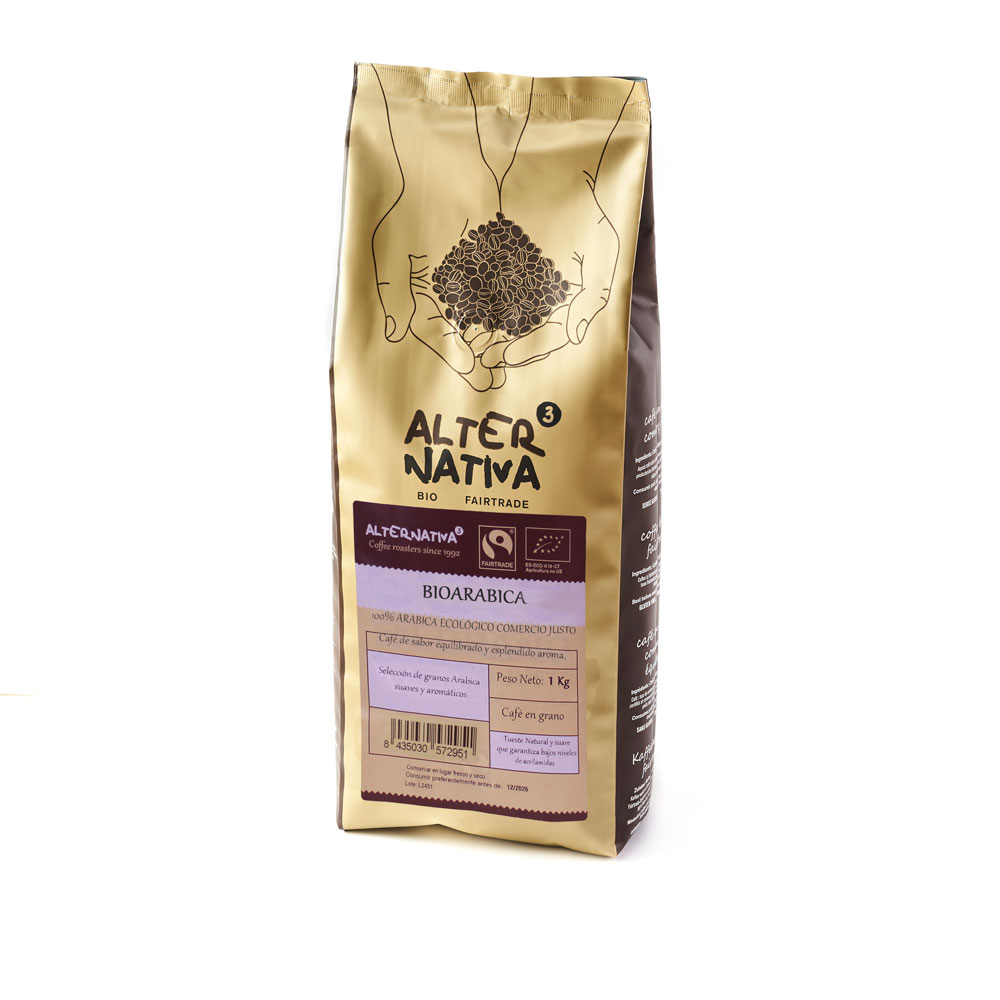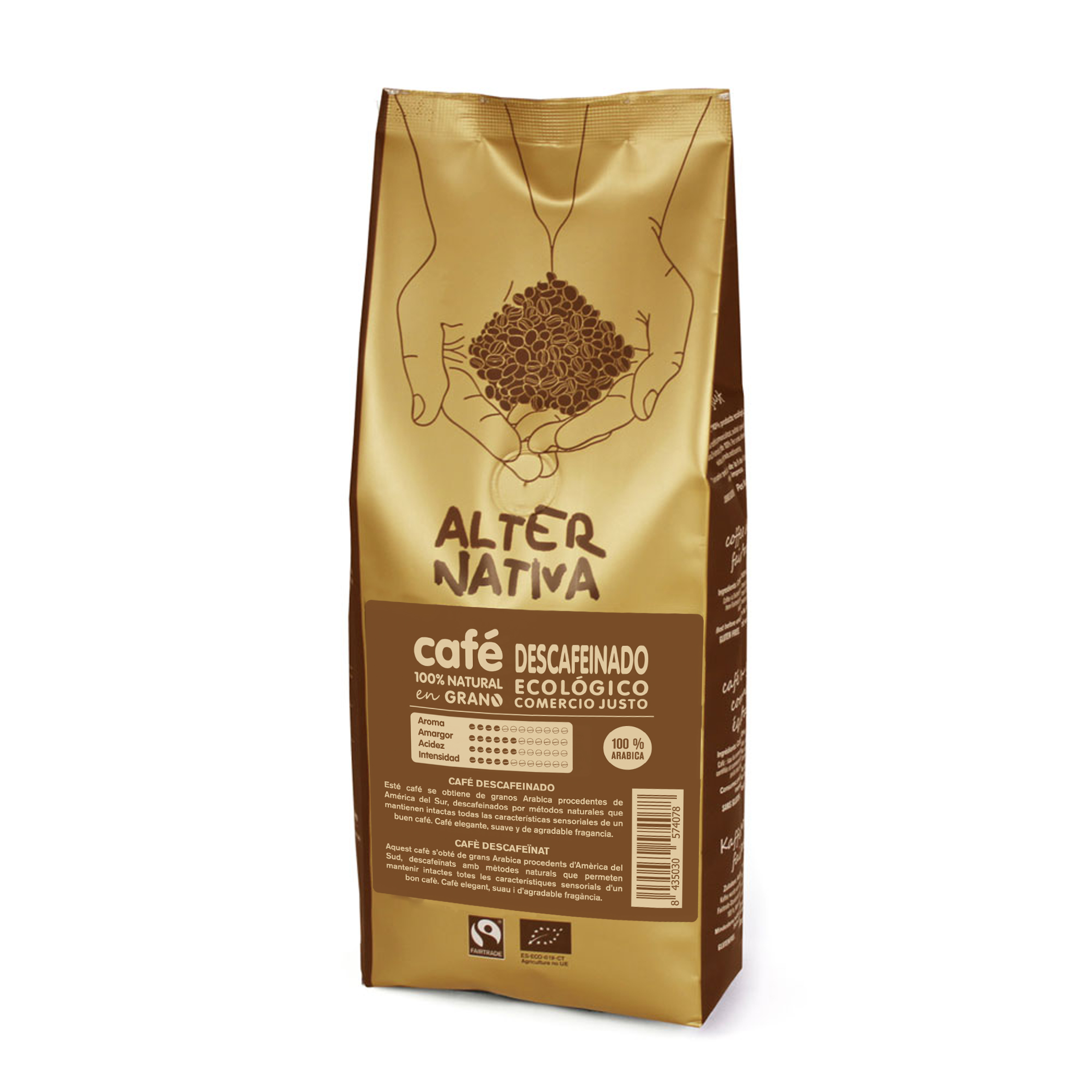Coffee from Nicaragua UCA BIO-FT 250 g
12,93€
Fair Trade Organic Nicaraguan Coffee. 100 % Arabica. SCA score 82 from the Uca San Juan del Rio Coco Cooperative.
Specialty coffee
Variety: Catuai, Caturra, Catimor
SCA score: 82
Height 1.250m
Notes of chocolate and vanilla with citrus acidity
Roasting: medium-light
Process: Washing
UCA San Juan DEl Río Coco
Characteristics of Nicaraguan coffee UCA BIO
This organic Nicaraguan bean coffee offers an exceptional experience in every cup, with a flavour profile that combines notes of chocolate and vanilla with a delicate citrus acidity. Grown 1,250 metres above sea level in the mountains of Nicaragua.The wine stands out for its unique complexity and balance.
The medium-low roasting process ensures that the beans retain all their natural properties, resulting in a smooth, clean beverage with very low levels of acrylamides.
100 % Arabica and organic, it is the best fair trade coffee for those looking for quality, sustainability and social commitment in every cup.
Why buy fair trade coffee from Nicaragua?
In the highlands of Nicaragua, at an altitude of more than 1,200 metres, coffee beans are grown that stand out for their balanced and enveloping profile. This organic coffee offers a unique combination of sweet notes, with hints of chocolate and vanilla, accompanied by citrus acidity that enhances its flavour without overshadowing it.
The washing process and medium roast preserves the natural properties of the bean, resulting in a clean, velvety cup. The growing conditions and commitment to sustainable practices make Nicaraguan coffee an ideal choice for those who value both quality and a positive impact on the producing communities.
Prepared by the cooperative Uca San Juan del Río Coco, R.L.
The cooperative Uca San Juan del Río Coco, R.L. is a union of eight cooperatives that brings together 370 small producers. coffee production in the Rio Coco region of Nicaragua. Its members, 80 women and 290 men, work together to promote a sustainable and socially responsible production model. Their mission focuses on promoting the economic and social development of their communities through the production and marketing of high quality, certified organic and profitable coffees.
Uca San Juan del Río Coco's commitment to the integral growth of its members is reflected in the various initiatives it undertakes. The cooperative organises workshops and training focused on improving productive, commercial and financial skills.This enables its members to access international markets with competitive products.
It is also developing a cupping laboratory to profile the quality of the beans it collects and exports, thus strengthening its capacity to guarantee exceptional speciality coffee.
Through innovative projects such as the creation of local coffee brands, Uca San Juan del Río Coco seeks to diversify its market opportunities while maintaining its focus on sustainability. By buying Nicaraguan coffee, in addition to enjoying a quality beverage, you also contribute to the development of producing communities committed to an inclusive and environmentally friendly economic model.
Fair trade is an effective tool for eradicating the poverty and inequalities generated by conventional international trade. Working for gender equality, the eradication of child labour and paying a decent price to the people who grow our ingredients, who organise themselves in cooperatives and make decisions in a democratic way.
Our cooperative is committed to social responsibility policies in all areas: with the producer cooperatives, maintaining long-term relationships; with the consumer, offering maximum quality and transparency; and internally, with policies of family reconciliation, team decision-making, environmentally sustainable surroundings and gender equality. Working in AlterNativa3 allows us to take part in the construction of a better reality in which people are above economic profit.
The producing cooperatives cultivate the products according to traditional, environmentally friendly techniques. No chemicals or artificial additives, which are harmful to health and nature, are used in the further processing.
